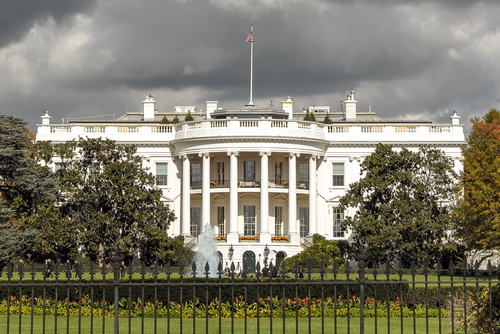House may sue to enforce former White House counsel subpoena, en banc DC Circuit rules

Image from Shutterstock.com.
An en banc federal appeals court ruled Friday that the House Judiciary Committee has standing to seek court enforcement of a subpoena for testimony by former White House counsel Don McGahn.
The U.S. Court of Appeals for the District of Columbia Circuit ruled 7-2, with recusals by two appointees of President Donald Trump who had held positions in his administration.
The Washington Post, the National Law Journal and the New York Times have coverage of the decision, Committee on the Judiciary v. McGahn.
There is no general bar against House of Representatives standing in cases involving interbranch disputes, the appeals court said in an opinion by Judge Judith Rogers. The decision reverses a ruling by a D.C. Circuit panel.
Judges Karen LeCraft Henderson and Thomas Griffith dissented.
The dissenters and the majority cited the U.S. Supreme Court’s decision last month remanding two combined cases in which congressional committees sought Trump’s financial records. The Supreme Court said lower courts should have taken account of separation of powers concerns and remanded for more proceedings. The case is Trump v. Mazars.
Rogers said Mazars did raise separation of powers concerns, but the case involved the validity of a subpoena, rather than standing, and it expressed concern about a “limitless” subpoena power.
In any event, allowing standing in the McGahn case “would preserve, rather than disrupt” a historical practice of accommodation between branches, Rogers said.
A holding against standing “would upset settled expectations and dramatically alter bargaining positions in the accommodation process over informational disputes in the future,” Rogers wrote.
But Henderson’s dissent emphasized separation of powers concerns in Mazars.
“By holding that the committee has standing,” Henderson wrote, “the majority enlarges the judiciary’s power to intervene in battles that should be waged between the legislature and the executive and opens the door to future disputes between the political branches.”
In a second case, the en banc court said the McGahn decision resolves the standing issue in a House suit contending that Trump overstepped his power by diverting funds to build a border wall.
Both cases return to the lower courts. In the McGahn case, the court will consider other challenges to the McGahn subpoena. He is unlikely to testify before the election, according to the New York Times.
Department of Justice spokeswoman Kerri Kupec gave this statement to the Washington Post: “While we strongly disagree with the standing ruling in McGahn, the en banc court properly recognized that we have additional threshold grounds for dismissal of both cases, and we intend to vigorously press those arguments before the panels hearing those cases.”
Write a letter to the editor, share a story tip or update, or report an error.


